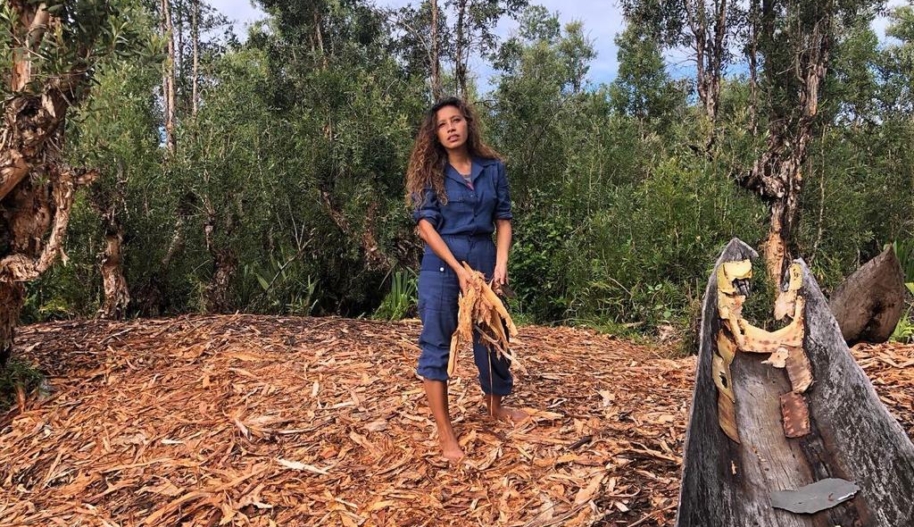Angélique Decampe, President of the community association Razan’ny Vohibola, is an environmental human rights defender, actively involved in protecting the Vohibola forest in Madagascar. On July 5, three men who had been illegally cutting down forest trees came to her home and made death threats to her.
She was targeted after she took photos of their illegal activities in connection to her conservation work. Angélique is at high risk and the authorities must investigate these death threats and take all necessary steps to protect environmental rights defenders like her.
Here’s what you can do:
Write to the Minister of Justice urging her to:
- Ensure an independent, impartial and effective investigation into the death threats against Angélique Decampe and into the killing of Mickael Stenor and bring all those responsible to justice in fair trials.
- Take all necessary steps to ensure Angélique Decampe and other Razan’ny Vohibola’s members are adequately protected, in consultation with them and accordance to their wishes, to ensure they are able to carry out their peaceful activities in defense of the Vohibola forest safely and without fear of reprisals.
Write to:
Minister of Justice
Randriamanantenasoa Landy Mbolatiana
Ministere de la Justice
Lalana Rakolomalala Joel
Antananarivo, Madagascar
Email: spminjus@yahoo.fr
Salutation: Dear Minister,
And copy:
Mrs. Sahondra Harilala RAKOTONIAINA
Counsellor & Chargé d’affaires, a.i.
Embassy of the Republic of Madagascar
3 Raymond Street
Ottawa, ON K1R 1A3
Tel: (613) 567-0505 Fax: (613) 567-2882
Email: ambamadcanada@gmail.com
Background
Angélique Decampe and her husband, Stéphane Decampe, are Franco-Malagasy who are human rights defenders and are also actively involved in the tourism sector in Madagascar. They own the Jungle Nofy hotel, situated near the Pangalanes canal, and are deeply committed to the protection of the Vohibola forest.
Angélique Decampe serves as the president of the community association Razan’ny Vohibola (Razan’ny Vohibola | Toamasina | Facebook), which collaborates with the Regional Service for the Environment and Sustainable Development (DREDD) from the Toamasina region in the management of the Vohibola forest. Spanning approximately 2,000 hectares, this forest is part of the state’s private domain and boasts a rich variety of endemic flora and fauna, including noteworthy species like the world’s smallest chameleon and frog.
Angélique and Stéphane Decampe, together with other members of Razan’ny Vohibola, frequently report instances of illegal logging and illegal coal mining taking place in the Vohibola forest, which consequently exposes them to frequent threats and attacks.
Amnesty International has observed a disconcerting pattern where those accused are consistently released by the courts, leading Angélique Decampe and her association to believe that they enjoy protection from influential individuals. This climate of impunity not only puts Angélique Decampe, Stéphane Decampe, and other members of the Razan’ny Vohibola association at risk but also exacerbates the destruction of the Vohibola forest.
No protection for whistleblowers
Civil society organizations in Madagascar have been calling the authorities to adopt a law on the protection of human rights defenders and whistle-blowers. They have provided specific recommendations on the scope and content of such a law to be in line with Madagascar’s international human rights obligations.
However, a proposed bill on the protection of human rights defenders presented by the Ministry of Justice does not recognize whistle-blowers. It also does not contain any special provisions to ensure that protection measures are determined with a gender perspective, despite the specific risks and challenges faced by women human rights defenders coming not only from the government but also from their communities.
The bill submitted to Parliament is still pending adoption and can therefore be revised to address both the lack of legal protection of whistle-blowers and the need to incorporate a gender perspective into the protection of women human rights defenders such as Angélique Decampe.













